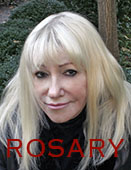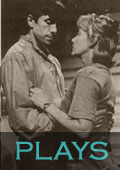 |
 |
 |
 |
 |
 |
Degas in New Orleans
(Edgar stands facing the audience. As he mentions his cousins and brother they enter the scene and pose in a tableau of beautiful young people in the countryside.)
Prologue: Edgar (Music playing softly)
EDGAR I have a picture in my mind of the best painting I never painted: three women and two men in untouched expectation. It’s October, 1863. I’m in the French countryside with my cousins, unclaimed jewels from New Orleans riding out the Civil War in France . My brother Rene is there, the bloom of youth on his cheek. I’m twenty-nine. He is only eighteen. We’re dining in the forest, our enthusiasm buoyed by the smell of red wine, fresh bread, and the lightness of each other. Mathilde with her husky voice talking at full speed about Italian plums and Van Dyke. Didi with her notes on Flaubert and Therese Raquin and Tell, beautiful Tell, just twenty and already a Civil War widow. And oh, the sunlight and the, God knows why, laughter. We were in our twenties and life seemed good, forever a future. (Music fades out) That was before thirty thousand Parisians were killed in the Commune, six hundred thousand boys died in the American Civil War. I was copying Delacroix at the Louvre and hurrying to the French country to relax. Nine years later when I visited New Orleans , our worlds had changed.
(slides—Degas’ face and then the Degas house on Esplanade Avenue in New Orleans . Throughout the play we hear ragtime music like the compositions of Louis Moreau Gottschalk)
BLACKOUT
ACT 1
October 25, 1872 — 5:30 a.m. (Gottschalk music and slides of the Degas House at the same time)
(Jo Balfour, 10, is asleep on the floor, in a pink tutu and ballet slippers, her hair caught in a ribboned ponytail like Degas’ statue of La Fille de Quartorze Ans. Jo rises dreamily and begins to dance. She lies back on the floor, returning to her sleeping state.)
(music fades, slides out, lights up)
(Tell Degas, 29, a blind woman, feels her way across the stage, counting the steps from the door to a sofa. She is exquisite, fragile with a porcelain beauty. Now and then she stumbles, but stabilizes herself with a little moan and moves ahead with even more fervor.)
TELL One, two, three, four . . . (Bumps into a table) Five, six, seven, eight. (Stumbles on a suitcase) Who put that there? Whose suitcase? Edgar’s? (Smiles affectionately)
Performance HistoryInvited to Ensemble Studio Theatre's, NYC, Oktoberfest of New Plays, October 2002. Invited to New End Theater, London, Spring 2002. Secured agented representation by Bryan Drew Inc., London and the Robert Freedman Agency, NYC. One of eight plays published in Anthology of Best American Women Playwrights 2002, Smith and Kraus, NYC, 2003. Translated into French for consideration for Theatre de la Tempete, Cartoucherie Theatre, Paris, Fall 2003 and for publication by M. Archimbaud editions, Paris. Invited staged readings at the Drama Bookstore, Agingdon Theatre Company, 2004.
|